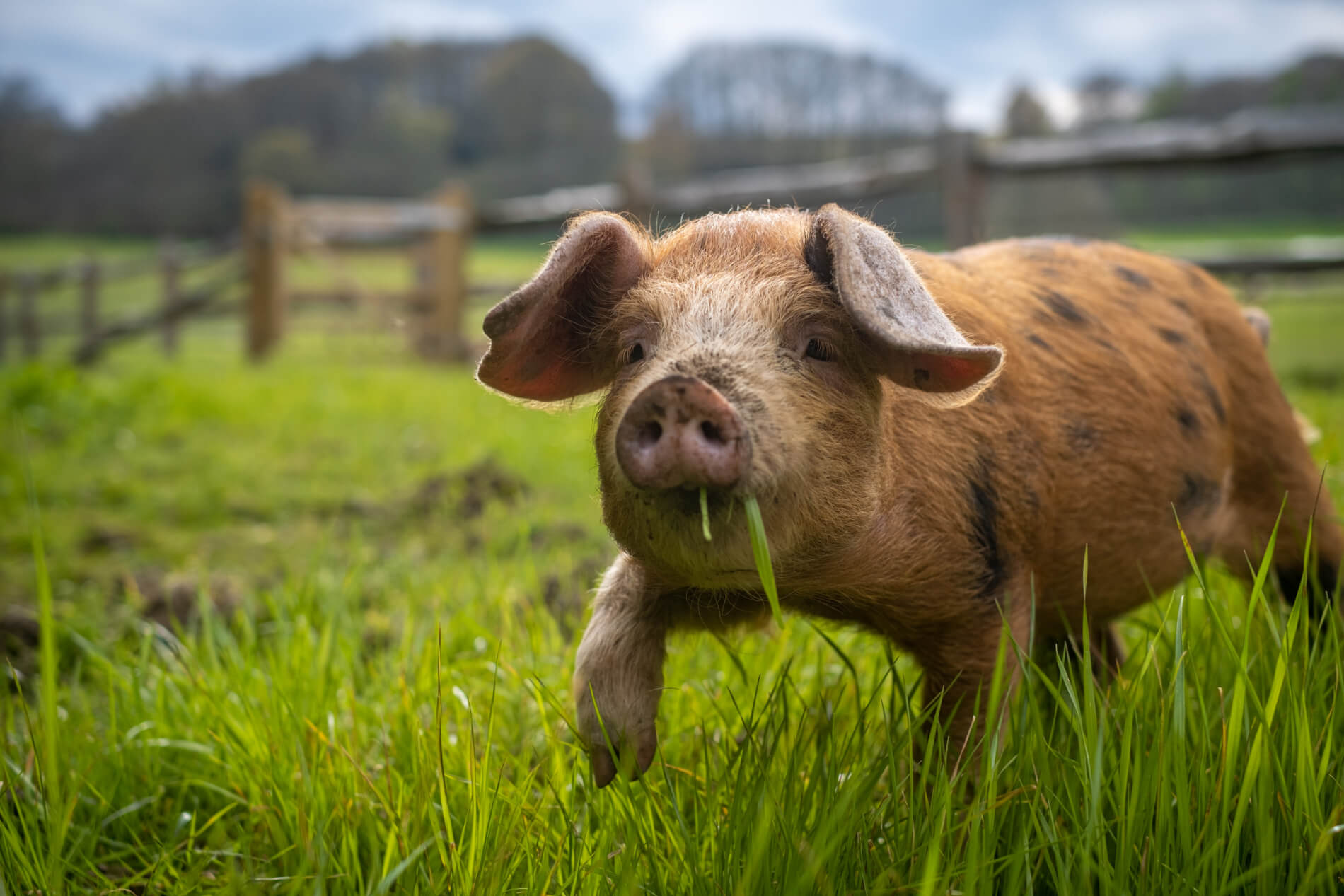
We are passionate about rebuilding and restoring soil health. We practice mob grazing to increase soil fertility, insect and plant biodiversity, and carbon sequestration. We believe in protecting existing wildlife habitats and promoting the creation of new ones. Our aim is to produce high quality, nutrient-dense food from livestock reared within a sustainable agricultural system.
In order to restore balance and transition fully to a sustainable agricultural system we aim to:
1 Continue to improve soil health and carbon sequestration using regenerative farming methods such as mob grazing.
2 Produce 100% grass finished livestock, which are not only great tasting, but rich in nutrients
and Omega 3.
3 Increase site biodiversity by introducing wildlife corridors, connecting habitats and creating safe environments where wildlife can flourish.
4 Reduce waste by promoting a circular economy; using (and reusing) 100% recyclable and eco-friendly materials.
5 Increase site biodiversity by introducing wildlife corridors, connecting habitats and creating safe environments where wildlife can flourish.
6 Work towards carbon neutrality reduce our own carbon footprint and help others via our work with Carbon Footprint UK.

Set in the Surrey Hills we have the Greensand Way running through the heart of the farm allowing public access. If you ever visit you might like to know a little more about our:
We have 52 acres of forestry supporting the bird population and providing wildlife corridors and habitats for a variety of species.
With 198 acres of grazing land we have subdivided the fields to allow a rotational / mob grazing programme.
Our soil is sandy with patches of clay presenting water management challenges throughout the year
A brook runs through the centre of the property providing wet ground for the cricket bat willows.
Find out more about our family-run farm when Farming Britain came to visit. Alongside our longhorn cattle, you’ll discover how we’ve diversified — from truffles and storks to weddings in the Surrey Hills.

Our farm is home to free-range, ethically reared:
The English Longhorn traces its ancestry back to oxen used as draft animals in the 16th to 17th centuries in the north of England. They are easily recognizable due to the curving horns and for the distinctive white line that runs along the ridge of its back and down its tail.
Lleyn sheep originate from the Lleyn peninsula in Wales and until the 1970’s were considered a rare breed within the UK. They are warm white in colour with wide foreheads and are renowned for their tremendous mothering ability, ease of lambing, longevity, and prolificacy.
The Mangalitsa pig is known as ‘The Hairy Pig’, producing ‘The tastiest pork in the world’! It is a rare breed of pig from Hungary that has an unusual growth of curly hair over its body, akin to that of a sheep! Fleece colours come in black, red but with blond being the most common.
Honeybees are great pollinators and of integral importance in the food chain by pollinating food crops but also many wild trees, bushes and flowers. Our honeybees produce wonderful natural local honey in hives on the farm.
All our produce is available to purchase via our online Farm Shop. Click & Collect or Local Delivery is available and we use 100% recyclable packaging. It’s not just about great tasting meat and honey, it’s about supporting a sustainable food system.
Shop All Products